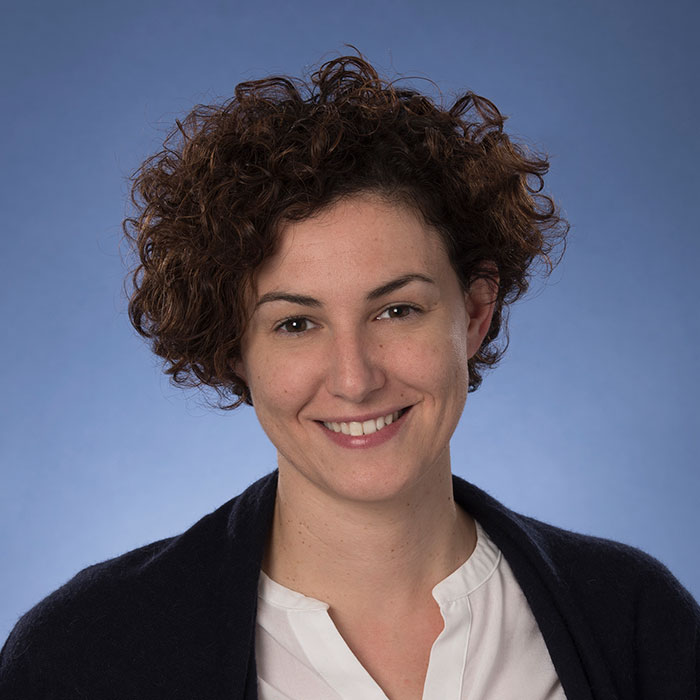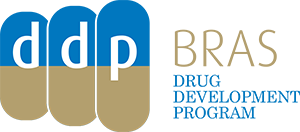
BRAS DDP Clinical Fellow 2016 – 2018
I was born in Lecco, in the north of Italy. I obtained my medical degree at Milan-Biocca University and completed my training in oncology in the same University. I then practiced as a medical oncologist at Lecco Hospital, with a special interest in gynecological and breast cancer. In 2016 I moved to Toronto with my husband and started a Fellowship in Gynecology in the Bras Drug Development Program at the Princess Margaret Cancer Centre.
Why The Princess Margaret Cancer Centre?
Princess Margaret is a worldwide recognized cancer centre where it’s possible to combine clinical and research activity with providing excellent care to cancer patients. The Princess Margaret is one of the most advanced centres for the management of gynecological cancers. It features collaboration between preclinical and clinical infrastructures. My fellowship here is giving me an inestimable opportunity to increase my expertise and expand my knowledge at one of the best cancer centres in the world!
Why did you take up medicine?
I have always been fascinated by the complexity of the human body. Since I was a child, science was one of my favourite subjects and my interest increased in high school. I have always been interested in helping others, so when I was a teenager, I joined volunteer programs in my community. The decision to apply for Medicine came naturally to me during my last year of high school. Being a doctor was the perfect way to combine my interest in science with my wish to be useful to others.
Why Oncology?
I choose oncology for two main reasons: First of all, I have always been very interested in the complex biology of cancer cells, and inspired by the extensive research still required to understand how and why cancer cells proliferate and disseminate.
Oncology is a dynamic field that is rapidly expanding. There are so many new discoveries that require continued update and study. I really love the challenge. The second reason I chose to be an oncologist is the relationships I develop with my patients. In our profession, we see the patient many times and this continuity gives us the opportunity to build a strong relationship based on trust and compassion. You can really feel that you are with them in both the good and the bad moments.
You celebrate each victory with them and you offer them your support and your presence in the hardest moments leading up to the end. Despite the enormous improvement achieved in the past decade, there is still so much to do to improve the care of our patients, and this is the engine that gives me the strength to carry on with my job, and the motivation to improve my knowledge every day.
What is your role as a fellow at The Bras Drug Development Program?
As a clinical research fellow in the Bras Drug Development Program, my activity is both clinical and research. My main focus is gynecological cancers. I take part in the daily clinical activity under the supervision of Drs. Oza and L’heureux. I follow patients who are enrolled in clinical trials. I help in the management of new patients who have been admitted to the ward. This fellowship is also providing me with remarkable experience in clinical research. My mentors have given me the opportunity to have an active role in the different steps required for the development of new drugs: the creation of clinical trials, their design, the development of protocols, the enrolment, the analysis of data and the patients’ follow-up.
Right now, a major focus on oncology is on immunotherapy. It’s well established in some cancers, like melanoma and lung, but in gynecological malignancies, there is still a lot of work to be done to understand how to use immunotherapy in this cancer subtype. I am responsible for some studies that are trying to answer this question. Moreover, I am developing two research projects focused on molecular and immune profiling of gynecological cancers in collaboration with scientists from different fields. The opportunity to join translational research projects is amazing and it makes me feel that I am contributing to the improvement of oncology knowledge. The BRAS Drug Development at Princess Margaret is an outstanding program and I am very honoured to be part of it.
Who are your mentors at The Bras Drug Development Program?
My mentors are Drs. Oza and L’heureux. They have unremarkable clinical and research expertise, and I have learnt so much from them in my first year of fellowship. I am so grateful to them for giving me the opportunity to be here and to be part of their team.
What do you think are some of the major advances we have had the last few years in cancer research?
There have been a lot of advances in the field of oncology in the last decade. We have a better understanding of the molecular mechanism that may drive the development of cancer, its progression, diffusion and its resistance to treatment. Nowadays, it’s easier and faster to study the DNA of cancer cells and this is key to the development of new treatments. For that reason, the collaboration between scientists and clinicians is necessary to improve the cure of cancer. Different targeted therapies that inhibit specific mechanisms that keep cancer cells alive, have been developed and approved in the past few years and have improved the prognosis of cancer patients. Immunotherapy is an emerging field that instead of killing the cancer cells as chemotherapy does, it helps to stimulate our immune system to fight the cancer. In the past few years, different immune agents have been tested and important results achieved. However, not all the patients benefit from this treatment and more research is needed to understand the mechanism of resistance.
Another important victory has been the identification of altered DNA that increases the risk of developing cancer such as the BRCA 1 – 2 genes. When a person carries this mutation, the risk of developing breast and ovarian cancer is very high. Knowing that one is a carrier, opens the door to preventative measures such as joining specific screening programs, or undergoing prophylactic surgery when indicated.
What makes The Princess Margaret Cancer Centre and The Bras Drug Development Program one of the top five in the world?
The Princess Margaret Cancer Centre is a great place to learn and work. There are fellows and staff coming from all over the world. And there are good reasons for that. Our patients have access to the most up-to-date treatment programs and drug trials. Even though the research is the main focus, the patient is always at the center of care. I have met so many good people who work here. They strongly believe in what they do, you can feel it in the air; their motivation, enthusiasm and their desire to do better for the patients is the precious common value of all the people who work here. This inspires me every day!
What inspires you?
The patients are my true inspiration, along with the people who work here. The wish to improve the treatment of cancer, to give hope to my patients and their families, to help them when there is no possibility of a definitive cure, to help improve their quality of life and to be part of the progress they achieve. This is what inspires me!
You have enthusiasm and passion for your job.
I really think that it is impossible to do this job without true passion. It requires a lot of sacrifice, many hours spent in the hospital. You often have to use your own time to carry on your research projects. I am so far from my country, my family and friends, that without that passion, this would be very difficult for me. But the possibility of working with internationally recognized leaders, and to learn from them, makes up for all the difficulties. In the BRAS Drug Development Program., I have the opportunity to know other fellows from all over the world, and to share their experiences and expertise.
Are you going back to your home country after your two years are up?
I don’t know yet what I will do and where I will go after I complete my fellowship. I quit my job in Italy to come here, so I do not have a position there now. But I do have my family and friends. So, I would like to say – yes I will go back to Italy. I’m a little bit homesick! However, I really like the type of job that combines clinical and research activity. This type of job is more difficult in my country where there are fewer resources than here at Princess Margaret. So, I do not have an answer yet.
How do you like Toronto?
There are things that I like and others that I like less. It is a very big city and I wasn’t used to that. In Italy, I lived in a little town: no noise, no traffic, easy to get in touch with people, lots of nature. On the other hand, in a big city you have a lot of opportunities and there’s always something to do – restaurants, cinema, theatre, games. As soon as spring begins, my husband and I will enjoy the outdoor activities in Ontario’s awesome parks. Lots of them are very close to the city and you have plenty of choices, from trekking to canoeing, from cycling to camping.
